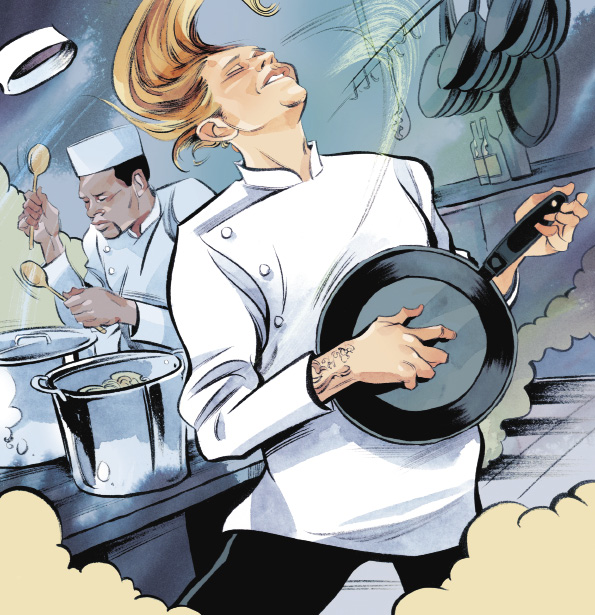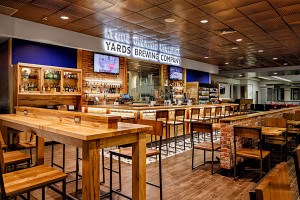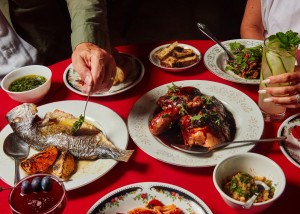Did We Create This Culinary Monster?
There’s been a lot of talk lately about what kind of restaurant town we really want to be. In the Philadelphia magazine that’s on the stands right now, I’ve got an essay asking what it means to our restaurant scene when being merely great is no longer a guarantee of success. We’ve been writing an awful lot about Volver—Jose Garces‘s new high-stakes (and high price) gamble at the Kimmel Center which now stands as the most expensive dinner in town by a long stretch. And as we all know by now, between knee-capping reviews from both Craig Laban and our own Trey Popp, and a whole lot of people on the streets wondering if the storied Walnut Street address might be better off if it was just turned into a Jamba Juice and ignored until all the ghosts of Le Bec-Fin have departed, Avance is having itself a very rough month.
And now, with all this in mind, I just ran across this essay over at Esquire’s “Eat Like A Man” blog which essentially lays the blame for every modern sin in restaurant-dom squarely at our feet.
I mean, not at our feet as in Philadelphia’s feet, but our feet as eaters and instagramers and desperate lovers of The Next Big Thing. To wit:
Restaurants, after all, are commercial enterprises. We are seeing more disorienting food on our plates because, on some level, we demand it. We show up; we whisper and point at the chef holding court in his (inevitably open) kitchen; we push photos of his food to our Instagram feeds (#genius #solucky); we work the visit into rounds of restaurant one-upmanship for as long as it flatters us to do so. We rarely stop to question whether we actually enjoyed the experience.
Diners have spent the past decade developing a blistering chef fetish. Public fascination with the innermost thoughts and inspirations of people who cook for a living has fueled chef-centric websites like Eater, The Braiser, Grubstreet, and Food Republic. Festivals have multiplied, putting professional cooks on stage as entertainers and lecturers. TV has made them celebrities. But for every chef who is a truly formidable thought-leader, there are fifteen other aspirants out there, filling the gaping content maw. So you have to ask yourself: how many times can you repeat the phrase “chefs are the new rock stars” before they start acting like them?
Harsh, I know. You can check out the full essay at the link below. And though I’m not sure yet if I do, if you feel like calling bullshit on it all being our fault, put it in the comments section and we’ll all fight it out together.
You Have Created Today’s Culinary Monsters. So Have I [Esquire]



